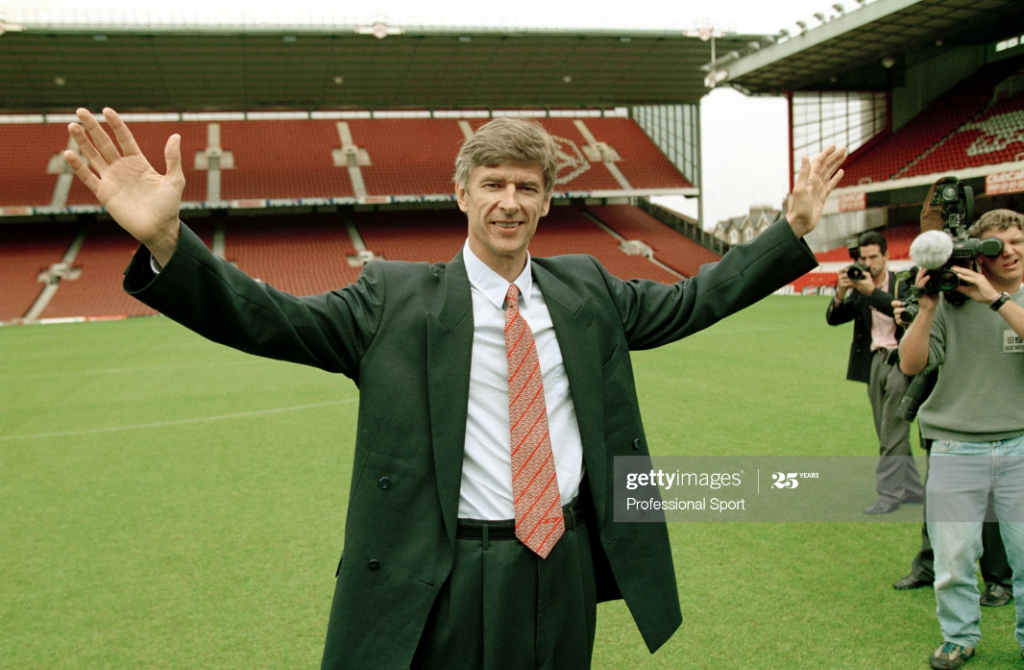
I’m sorry that this review comes so long after the publication of Arsene Wenger’s autobiography, not least because it has given time for some apparently genuine anticipation to build up. With matches coming twice a week, each calling for a preview and review, it has had to wait for an international break. It only occurred to me a day or two before the book came out, that I might conceivably have been able to get hold of an advance copy against a promise of a website review. Fortunately, by that time it would clearly have been pointless even to have made the attempt, so I was spared the embarrassment of a refusal. With luck, when Mikel comes to retire and publish his autobiography, this bar will be so well established that the publishers will approach us. We have, of course, already published extracts from the autobiography of Mikel’s successor.
Arsene’s autobiography starts with an account of the young Arsene Wenger growing up in Duttlenheim, a small village near Strasbourg. We learn a little of his early life, of his family and his early education in people skills as he watched the behaviour of men of the village in his parents’ bistro – “I listened to their conversations, I noticed which man talked loudest, which one lied, who was the conceited one and who the retiring one…”
The next chapter deals with Wenger’s playing career. Having been spotted by Max Hild, the opposing coach, Wenger joined Mutzig and then followed Hild first to Vauban and then to Strasbourg. Hild also noticed the latent coach in Wenger and offered him the position of Training Academy coach while he continued to play in the first team. Wenger’s playing career came to a sudden end when, aged around 30, the club president told him he was getting too old. This was as great a surprise to the rest of the team as it was to Wenger himself who watched in the next match as his erstwhile teammates outdid themselves, leading him to resolve to concentrate his full efforts to coaching.
Chapter 3 covers Wenger’s first couple of coaching jobs – a year at Cannes, then in Ligue 2, and three years at Nancy in Ligue 1. His job in Cannes was the first time that Wenger had left Alsace – there’s a nice story that he made his first signing en route to the South, when after arranging to meet the player in a motorway services, they played four-on-four and one-on-one games of football by way of audition. Life in Cannes was very different to north-eastern France and Wenger gained an insight into the feelings of a newly-transferred player struggling to come to terms with new team-mates not knowing anyone, in a new town. We also learn a little of Wenger’s beliefs regarding player development – learn technique between the ages of 7 and 12; develop physically from 12-16; mentally from 17-19 and gain intelligence and motivation between the ages of 19 and 22. He tells us that football “depends on three criteria: ball control, decision making and the quality of execution”. An illustration of Wenger’s understanding of finance (some might call it parsimony) comes in the shape of another story of him making the 1000 mile round-trip alone to a trade fair in Munich where he negotiated a good deal on 100 footballs for the club.
After Nancy, Wenger moved back to the south coast, this time to Monaco. Perhaps a description from chapter 4 of his relationship with the Monaco players tells us a little about what Wenger misses most from the old days: “It was possible for us to talk. They were not yet surrounded by lawyers, agents, advisors who are really family members, all those middlemen who would gradually get between a player and his coach”. There’s a nice story about George Weah, who was recommended to Wenger while he was playing in Cameroon. Wenger brought him to Monaco, where he was initially thought “hopeless” and “clumsy”. After a great deal of work and encouragement Weah went on to win the Balon d’Or in 1995. By now managing in Japan, Wenger happened to be in Milan for the ceremony and when he found out about this, Weah insisted he come along, vouching for him to the security staff when he arrived and tried to gain entry without a ticket. At the presentation, Weah had dragged his former manager on stage and given him his prize. Wenger says that he still speculates on what the security men must have thought as he left the building at the end of the night carrying the trophy.
Chapter 5 tells of Wenger’s time in Nagoya, where he came across players with a completely different cultural background. He tells us of their extraordinary commitment and how their trust in a manager’s infallibility would lead them to follow his instructions without question and to rely upon him to make all their decisions (even those in the middle of matches) for them. Wenger tried to re-educate the team to believe that his job was to train them to be able to take decisions for themselves – something he achieved fairly successfully to judge by the team’s rise from being the laughing stock of the J League (17 consecutive defeats) the season before he joined to finishing second in his second and last season. It was in Nagoya that Weneger and Boro Primorac (whom he had met at Cannes) formed their coaching partnership. They also shared living accommodation and the book includes a curious story (of which Wenger is apparently very fond) of a social evening the Primorac and Wenger families had enjoyed together, when Boro and Alphonse (Arsene’s father) spent most of the time deep in conversation. Afterwards, Wenger asked his father what they’d been talking about and received the reply, in effect, “No idea, I could hardly understand a word he was saying”. There’s a lot of interesting stuff in this chapter about Japanese culture – I liked the story about how Wenger saved his interpreter’s job – but this review is getting far too long.
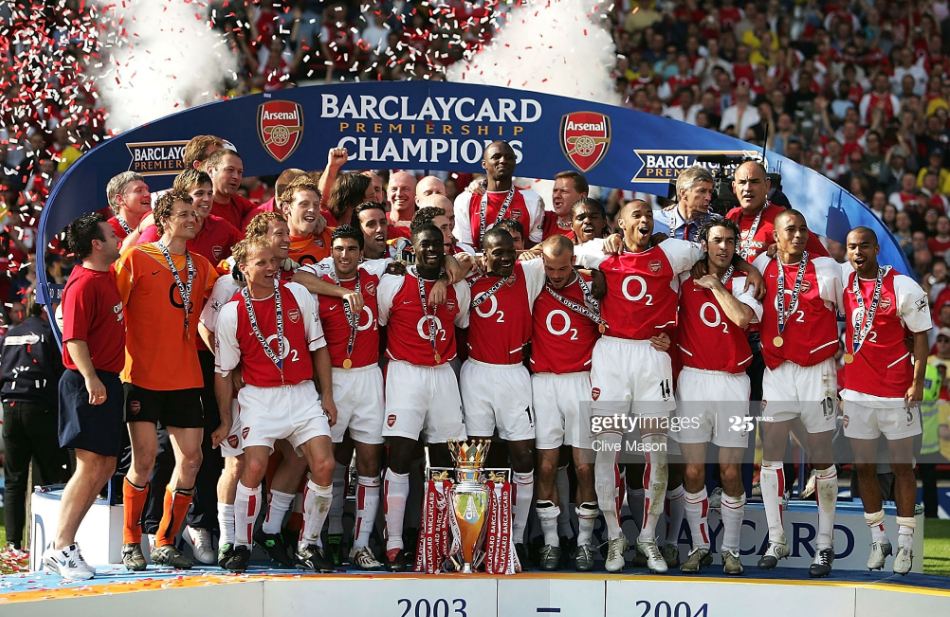
Chapter 6 marks the main event – Arsene Wenger’s arrival at Arsenal. There is a description of how the young Arsene had watched FA Cup Finals on a black-and-white TV growing up and had conceived an ambition to step onto the perfectly prepared Wembley pitch; of how he had flown to England one summer in his playing days to learn the language and had wandered around Cambridge knocking on doors in search of rooms to rent. By sheer luck, he ended up with a landlady who taught at a language school and got him enrolled on her course. After a description of Arsenal’s history and culture – well known to drinkers at this establishment – there’s a paragraph each on many of the players Wenger found at the club – Adams, Seaman, Berkamp, Wright and Keown – and descriptions of his first few acquisitions – Vieira, Petit and Garde. He follows up with a list of notable players that he brought in over the years – Ljungberg, Gilberto, Arshavin, Ramsey, Gallas, Sagna, Vermaelen, Walcott, Mertesacker, Fabianski, Clichy, Gibbs, Coquelin, Szczesny, Cygan, Senderos and Kanu. After an account of his first few, eventful and successful, seasons – the double in 97-98, the disappointment of 98-99 and that goal by Ryan Giggs, Wenger tells the story of the replayed FA Cup tie against Sheffield United in 1999 and the purchases of Henry, Wiltord and Pires. The chapter ends with the 2001-2 season, when Arsenal won the title without losing away, and the start of the quest to go one better by going through a season without losing at home either.
The achievement of that ambition is covered in chapter 7, which starts with brief appraisals of Campbell, Toure, Lauren, Cole and Lehmann. (The paragraph on Cole includes the sentence “It is one of the great regrets of my life that I lost him to Chelsea, thanks to a misunderstanding in the negotiations with his agent”.) There are no descriptions of any of the 49 matches which include the Invincible season – no comments on the circumstances surrounding Arsenal’s equalising penalty in the home match against Portsmouth, nothing about Thiery Henry’s individual excellence at home against Liverpool (just two of my own memories of 2003-4) – but there is much about the spirit of the team, how they “were solely focussed on the objective of playing very well during every match, swiftly correcting any individual faults, maintaining the level of our ambition”. There is a brief description of the away match against Manchester United that brought the run to an end before the chapter turns to an account of the press reaction to Arsenal’s team for the home match against Crystal Palace in February 2005 in which there were no English-born players, and a discussion of the role of foreign-born players in improving (or otherwise) the quality of English players in the years since then. The chapter ends with Arsenal’s FA Cup win in 2005, courtesy of Patrick Vieira’s last kick of a ball for the club.
Chapter 8 covers Arsenal’s move from Highbury to the new stadium finishing with a brief description of the 2006 Champions League final. Wenger describes how he always lost in “unbelievable circumstances” in the Champions League and says that the 2006 final hurts the most and he has never been able to watch it again.
Chapter 9 deals with a period when the organisation of the club and the game itself was changing and becoming more complex. Arsenal’s staff grew from 70-80 when Wenger arrived in 1996 to over 700 by the time he left in 2018. Television revenues increased from around £20 million to £180 million in the same period. Much of the chapter is devoted to a description of these changes and their effects of day-to-day life at the club. Hanging over everything were the loans that had been taken out in order to build the stadium. Among the conditions of these loans was an agreement that Arsenal would spend no more than half of their income on player salaries. With a hard limit in place on the wage bill, it became harder to compete when other clubs came knocking on the door trying to recruit our best players and so, with regret, Wenger had to part company with a number of well-known names, who left with more or less dignity, leaving corresponding good or bad memories behind them. While he was hugely disappointed to see young players leave – Wenger says it was as if “we were being cut down before the harvest” – he understood their desire to win trophies and how Arsenal’s lack of players with more ”maturity, experience and clear-headedness” was making it appear unlikely that they would be able to do so without moving on. (Perhaps Alan Hansen had a point after all?)
The final chapter is about Wenger’s life since leaving Arsenal and deals mainly with his new job as Head of Global Football Development at FIFA. He tells us that he sees FIFA’s roles as: organising competitions; being custodian the Laws of the game; and education, and that he sees his role principally as educational. He speaks briefly about his ambition to set up a research centre to develop teaching methods and ways to measure performance and his desire to focus on the development of young players.

As a card-carrying fan of Arsene Wenger, I was surprised to discover after reading the book, that I had found it somewhat disappointing. I rather enjoyed the first few chapters as I knew little about his early years, but the chapters about his time at Arsenal contained little that was new to me. There’s a lot of interesting stuff about man-management and team building, but to be honest, nothing particularly new or startling. I hadn’t realised how much of a family man Arsene Wenger is – there’s a couple of pages of quite moving tribute to his daughter Lea in the middle of chapter 6.
I guess my disappointment should be directed as much toward myself as toward the book. Although it was silly to think that Wenger would be indiscreet, I had hoped to get some insight into some of the more controversial transfers of the post-Invincible era (think Gilberto, van Persie, Fabregas) but the only hint I spotted was the remark about Cole in chapter 7 that I mention above.
I would have been interested to know how things might have been organised differently in Wenger’s latter years to avoid some of the problems that became evident – maybe the lengthy description in chapter 9 of the way the game has changed might be an oblique admission that he had too much influence in the club, but there are many other statements of the importance Wenger attaches to a manager being involved in everything about a club.
I was reduced to trawling the book to find something that might have been emphasised more than I expected, or an omission that surprised me in search of enlightenment. I’m not the only one, I’ve read reports that the current Tottenham manager is devastated that he doesn’t get a mention. Never mind Jose, one day perhaps.
Perhaps the explanation of the unrest that marked the end of Wenger’s time at Arsenal is simply that as in politics, all football managers’ careers eventually end in failure. In a career as long as his, perhaps the sheer number of players you have disappointed, fans you have upset by selling their idols, journalists to whom you haven’t given decent quotes and opponents that you’ve beaten once too often just becomes too long.
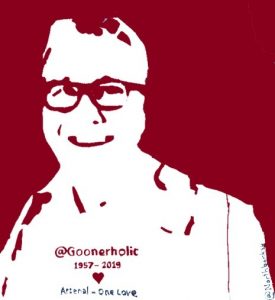

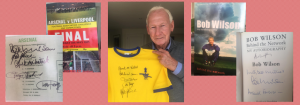
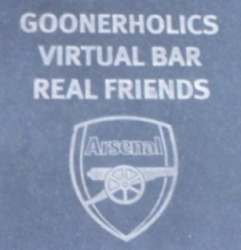



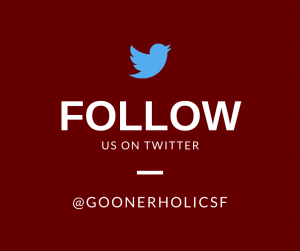
Thanks for an excellent review of the book, Pangloss. I share your disappointment at the lack of information about the summer during which we lost CF4 and the summer during which we lost RvP about which I do believe AW stated that he would reveal details in his book. I never expected tittle tattle or character assasinations but I did expect more new information than 1) RvP asked to come bck when he was ejected from Manure and 2) AW experienced hostility from not only the fans but also the board.
Pangloss,
Thankyou for summarising the book so well. You are largely writing on here to a whole group of card-carrying fans of AW ( me very much included) but I bet everyone who has read the book will be disappointed .I read it a month ago in a few hours and discussed it with a few Gooner friends. They all reacted exactly like you.
I hadn’t expected a ‘ kiss and tell’ effort, in fact back in August on here Bath and I agreed that he was far too classy a guy to write a book that would reveal what actually happened at the club especially the really great years when we boshed United and were Invincible, the move to the Emirates and the fall of Dein.
It was a relatively short book for such a full career , it could be 200 pages longer but he still wouldn’t provide us with the behind the scenes stuff we crave. I ended it feeling sorry for him and for the regret he had that he missed his daughter growing up. At least he is with her now but he and his wife parted largely because of his obsessive ( he says monastic several times) approach to work . He was on the execrable Graham Norton show recently and was like a fish out of water and came across as a pretty uninteresting man.
I know one person who knows him very well and he regards him as an extraordinary person of huge depth and intellect and I have one mate who had dinner with him and said it was arguably the most interesting three hours of his life ( and he is a senior partner in a major architect and has had a very interesting life himself) . I will depart now but that friend told me that Wenger swears like a navvy. When he felt able to mention this Wenger laughed and said it was through working with Steve Bould !
He is a fascinating man but you wouldn’t know it from this book
Thanks you, Bath and TTG for the kind reception of the above review. Scruz will be able to confirm that I have been a little nervous about how it would go down.
I also saw Wenger on the Graham Norton show (and may I commend you for the term execrable, which I think applies equally to the host and the show). I’m not sure I agree that he came over as uninteresting, my main impression was of how extraordinarily uncomfortable Wenger appeared throughout. I suspect he recognised quickly that Norton wouldn’t be particularly interested in anything he had to say and so limited his responses. He seemed to get on quite well with Flintoff, who he always referred to, and adressed, as “Andrew”. I find it easy to believe that despite living in England for 22 years it took him some time to work out who the “Freddie” was that Graham Norton kept referring to.
It’s a mark of his single-mindedness and dedication.
COYG
Pangloss
Your description of ‘ uncomfortable ‘ is perfect but the term uninteresting was used by my daughter who was brought up to venerate the man. But I think you read the situation well – his discomfort and his surprising modesty about his facility in English affected the way he came over . I was also a huge fan of Michael Kiwanuka until he ousted himself as a Spud!
One other thing which might need analysis other than by Arsene himself was how his confidence/ ability in the transfer market changed . A man who replaced an ageing Wrighty at exactly the right time with Anelka and then Anelka with a lightweight called Henry and Henry with Van Persie . Who replaced Merson with Overmars and then Overmars with Pires , who replaced Petit with Gilberto and Vieira with Fabregas and made a profit on every deal after taking their best years for us. I remember trying to watch a youth team game at Gillingham when Arsenal visited. It was before SatNavs and I didn’t know the kick off time and I arrived just as they finished ! I got talking to one of the Arsenal coaches who marvelled that Wenger had just sold Isaiah Rankin to Bradford for a million which was a lot of money then ! He suggested the lad was worth about a tenth of that but ‘Wenger did the deal and he can sell sand to the Arabs!’
Yet when we signed Arshavin and Ozil, Wenger apparently changed his mind both times at the last minute and the deals were driven by Gazidis. He had little to do with the signing of Aubameyang. He messed up the Sanchez situation. He also dropped interest in Griezmann after the lad had turned down umpteen offers to come to Arsenal . Did he lose his touch with age or were there other forces at work ?
A grand summary, Pangloss, and your review speaks for us all.
I only hope an unexpurgated draft is tucked away for later publication when the distance of time allows. As others have said, a kiss-and-tell was never likely, and AW still has a day job in football, which limits his scope to burn bridges, not that he is the bridge-burning sort.
Has any manager or coach written an outstanding autobiography? I suspect that there is something in the obsessiveness needed to do the job at the top level that would be at odds with the ability to stand back and view life in the round.
TTG@5: Did he leave the transfer market or did the transfer market leave him? One of AW’s strengths was to spot overlooked or raw young talents. Another was to identify good players he could turn into great ones (the George Weah example Pangloss quotes above is an example). The pool of such opportunities was much broader and deeper when he started out than in the later stages of his coaching career by when data analytics had taken hold.
My chief issue is that despite the fact Mr Wenger is an educated man, it read as little more than the kind of essay we all had to write as 10 year olds in September on the return to school entitled “What I did in the summer holidays”. There was little in the way of craft and it was simply a list of events in chronological order, of the kind which any Joe Bloggs football hack could have, and has,ghostwritten for any one of a thousand uninteresting journeymen footballers. Hugely disappointing.
Ned
You raise a very good question .
I went to Fulham at the start of the 2013/4 season and although we won easily as the team came off as they do in front of the fans at the Putney End the cry was a very animated ‘ Spend some f…ing money!’I heard that we had a deal set up for Ozil and a couple of days before that game at the Board Keswick and Gazidis had basically wrung him by the neck when he got cold feet about that transaction.
I think he became very conscious of the financial pressures on the club and that he lost confidence without David Dein , the only person who is regularly namechecked in the book
Thanks for the review, Pangloss. I’ll give it a miss.
Sergio Ramos gets his 176th cap for Spain, same number as Gianluigi Buffon, the all-time leader. If I understood my Spanish announcer correctly.
I haven’t read the book, so cannot comment on it’s content.
But fellow reprobate Gooners of my acquaintance who have, gave me consensual feedback that voiced the same refrain, ie: ” why did he bother ”
Only Arsene knows why he produced in more than one Gooner’s summation,
‘ such a soporific read ‘.
As for Mrs Norton’s show, and others of same ilk,
When the Doyen of talk shows retired, so did i.
To quote the title of TTG’s excellent match report, “Seven days is a long time in football” and as the interlull is 14 days it would be tempting to say it will be twice as long as the interval between our last two league games but considering the Villa result I have a feeling it’s going to seem a good deal longer than twice.
Intermezzo entertainment: https://m.youtube.com/watch?v=qdVu8HVIANI
Or you could just Take Five, bt8: https://youtu.be/tT9Eh8wNMkw
Brilliant win tonight for Scotland in Euro playoffs
Penalty shootout after scores were level after 90 minutes
KT had a blinder.
Scotland’s first appearance in a major championship since World Cup of 1998.
BTM and Bath can come out form behind the sofa. !!
And more good news,
Young Saka played the full 90 minutes in England friendly 3 nil win over Republic of Ireland, and AMN played the last 30 minutes.
Which is 23 minutes more than he has featured in the Arse first team in the past 6 wks. !!
No mean feat by Scotland, having to play a one leg only playoff away against Serbia.
Led 1 nil till the 90th minute, then a last minute Serb equalizer took it to extra time.
Out on their feet near the end, but guts/courage refusal to yield got them to penalties, and they won 5 -4.
That will be one hell of a plane ride home tonight. !!
How one changes with age.
I almost lost the use of my legs so much was I laughing in 1978 watching Ally’s Army succumb to Peru and struggle against Iran ( before typically they beat Holland ) but I’m absolutely delighted for Scotland tonight. They should have wrapped it up in normal time being much the better side but had to dig in during extra-time. Gutsy penalties and now an easy group with England as makeweights! Well done the Tartan Army.
Clive was right Kieran was superb .
Well done Scotland and commiserations
to NI. A group game against them
should spice up the borefest of
the Euro20 group stages.
Arsene’s book was much as expected although I had hoped for some more background to various events. The stats at the back of the book did, however, throw up some interesting items.
One of which was how the poorly managed Alexis Sanchez departure was allowed to unravel the way it did. The stats show that, after Thierry Henry, he had the best goals to appearances ratio of the highest goalscorers under Wenger, ahead of Van Persie and Giroud. Wenger outlines that he was a difficult character to manage but it remains annoyingly unexplained how we managed to let him go and end up with Mykhi instead.
It is also a mystery to me how, as the book the book suggests, we paid more for Mustafi (35mill) than we paid for Sanchez (32mill).
I was also surprised by the information that the most common scoreline under Wenger was 1-1, followed by 2-1 and 1-0.
Finally, my biggest surprise was that, apparently, Tom Cruise made a single appearance for the Arse under Wenger. I obviously missed that completely.
UTA.
Who is Mus’s agent? Maybe we
should put him in charge of our
finances 😃
OM@20: SBE Management, a Swiss agency. Mus appears to be its star client. Perhaps it is run by the Gnomes of Zurich. Enough said.
NG@19: Those are the three most common scorelines in football, and account for 30% of results. Given the large number of games AW managed, it is unsurprising that his results trended towards the mean.
Interestingly, this season, the three most common scorelines in the Premier League are 0-1, 0-3 and 1-1, in that order. Goals scored by home teams are down 12% (as we know to our own cost!). Crowds apparently make a substantial performance.
‘Difference’ can replace or follow ‘performance’ in @22. Spill chuckers!
That’s a wonderfully written review of an engrossing book. I must admit that I was hoping for greater insights into the mechanics of his thought process around player selection, choosing or not choosing tactical variations, creative team chemistry etc. Especially for the Arsenal years.
I too liked the early chapters most. The Alsace village days but also his time in French football and the sojourn in Japan. Lots of interesting connections in his time at French football that I (and probably many like me) didn’t know: for example, working with Michel Platini’s father in Nancy (but of course years after Platini himself has left Nancy), the formative years of Monaco (and how Monaco has changed as a club over the years), Petit’s time in Monaco. I got the impression that Petit-Vieira remained in Arsene’s mind the best midfield combination he has put together.
The book is as classy as the man. Even the Bernard Tapie and Marseille saga gets only a fleeting mention (and oblique), as does Ferguson’s iron grip on the English football establishment. No rancor or grievances.
I will re-read the early chapters on his upbringing and his love of football now and again. They feel very authentic in a way not many sporting autobiographies do.
It’s a great review Pangloss, and fits perfectly with my own reading of it. But I disagree with Dr Faustus. I didn’t find the book engrossing at all. I found it pedestrian, poorly written and lacking virtually all insight. Such a disappointment from a man I admired so much.
Maybe it was better in French.
C100 @25, I agree 100%. Nailed it.
Noosa,
As I understand it Arsene vacillated over Sanchez. He was willing to sign a new contract with us around the time we went out of the Champions League to Bayern losing 5-1 in each leg. We didn’t follow up on his initial eagerness to sign and this eagerness dissipated after the Bayern debacle .
Wenger took the decision to keep him for the last year of his contract hoping he’d relent and sign during the season but prepared to lose him for nothing if he didn’t . Then shortly before the window shut he changed his mind and on the last morning of the window Citeh bid £70 m for him. We accepted subject to signing Lemar then of Monaco ( who was valued at £90 m and has done f- all since he has moved to Atlético) . Lemar was away playing for France and felt unwilling to commit at short notice so the deal fell through, Sanchez was royally pissed off and had a poor half- season. Desperate , we did a deal in January to suit Raiola whose client Mkhitaryan wanted to leave United. We did a swap which provided both clubs with players who both underperformed and cost a fortune with little resale value .
Anxious not to lose both our big assets for nothing we offered Mesut Ozil a contract at £350 k a week. I’m sobbing as I write this . This was not all Wenger’s fault . He wanted Martial in a swap but Mislintat felt Mkhitaryan would link better with Aubameyang who we were signing and Raiola could facilitate it .
I understand this hesitancy in the market decided Gazidis and his team that Arsene had lost it and led to his departure at the end of the season .
Your point is right about Sanchez but he was hugely unpopular in the dressing room and this increased over time
Oh dear, Arsenal.
https://pbs.twimg.com/media/EmtQVQQXEAAp6Ch?format=png&name=small
As for the book, Arsene Wenger kept telling us to wait for it and it appears to have been not worth waiting for. Quelle surprise.
But the good news is – PPV is DEAD
Saturday November 21:
12.30: Newcastle vs Chelsea (BT)
15.00: Aston Villa vs Brighton (BT)
17.30: Tottenham vs Man City (Sky)
20.00: Man Utd vs West Brom (BT)
Sunday November 22:
12.00: Fulham vs Everton (BBC)
14.00: Sheff U vs West Ham (Sky)
16.30: Leeds vs Arsenal (Sky)
19.15: Liverpool vs Leicester (Sky)
Monday November 23:
17.30: Burnley vs Crystal Palace (Sky)
20.00: Wolves vs Southampton (Sky)
Friday November 27:
20.00: Crystal Palace vs Newcastle (Amazon)
Saturday November 28:
12.30: Brighton vs Liverpool (BT)
15.00: Man City vs Burnley (BT)
17.30: Everton vs Leeds (Sky)
20.00: West Brom vs Sheff U (Sky)
Sunday November 29:
14.00: Southampton vs Man Utd (Sky)
16.30: Chelsea vs Tottenham (Sky)
19.15: Arsenal vs Wolves (Sky)
Monday November 30:
17.30: Leicester vs Fulham (Sky)
20.00: West Ham vs Aston Villa (Sky)
I completely agree Cynic. A triumph for fan protest over greedy clubs and broadcasters.
Thank you for all the compliments folks.
I must say that I tend more towards C100’s view of the writing than to Doctor Faustus’s. I do however, make enormous allowances for the fact that Wenger is not writing in his native language. Both of my parents grew up speaking German and although I wasn’t really old enough to notice I think both of them had a better grasp of English than Wenger had after they, like him, had lived in this country for 22 years. Granted my mother was a gifted linguist but I think Wenger’s obsession with football led to him being so isolated that he was unable properly to absorb the language. I think this isolation also prevented Wenger from properly absorbing British culture, leading to his poor performance on the Graham Norton show, also discussed above.
I wasn’t sure whether or not ClockEndRider@8 above was suggesting that the book had been ghostwritten which is why I couldn’t formulate a response earlier – sorry about that CER. I think quite strongly that the book was written by the man himself. I think it was under-edited if anything, Unlike CER, I noticed a non-chronological flow to the book, which I found distracting. Take, for example, the moving tribute to Lea in chapter 6 that I mention in the review. Surely a better the place for such a passage would be in the final wrap-up chapter, and wouldn’t a competent editor have suggested that?
I agree with you Pangloss that he wrote it himself. Maybe he should have used a sympathetic ghost writer. Amy Lawrence would have done a terrific job.
Countryman @ 25: I never have much expectations of sporting autobiographies, and I don’t read many of them. The novelty of the experience was enough for me to sustain the reading.
I liked the early chapters, even the one about his experience in Japan even though somewhat simplistic the cultural descriptions were. I found his experiences in French football and how he evolved towards a more hands-off manager from someone who liked to control every aspect of the game a good insight about he he became the manager we remember as.
I don’t expect anyone to agree or disagree with me. Arsene was a great football manager, but only a football manager after all (polymath and polyglot though he was), and based on his interviews etc. I expected the book to be anodyne. He self-edited all controversial aspects of his opinions and personality out of the book.
Certainly the most honest footballing autobiography was that of Tom Finney (I went and paid my respects to his statue outside the ground when we played Preston North End at Deepdale).
In it he had a chapter called “what Directors of Football Clubs know about football”.
It only had one page. It was blank.
Tom Finney’s autobiography sounds cleverer than most, Countryman. Pangloss, at least Arsene after 22 years had a better grasp of the English language than Emery had after one. Low bar aside.
I agree with Pangloss and C100 that this is Wenger’s work . I did hear that Amy was approached early on to work with him and I thought that was going ahead but clearly Arsene wanted ( as is his right) to make his own book . If Amy had been involved I think she would have done her best to get him to focus on some if the things we would desperately like to have known .
Leaving that aside I still have enormous respect for him although I was probably a more outspoken critic of his at times than many others on here . It was a measured criticism , couched in great affection , cognisant of what he achieved at his zenith . I do wish he had retired on the pitch at Wembley in 2017 , FA Cup in hand , rather than negotiating a deal for two more years the following day directly with Stan Kroenke . That deal did Arsene no favours and he deserved to go out on a relative high .
TTG@27
Thank you for the interesting background to the Sanchez departure. Knowing that we turned down Citeh’s 70mill (which would have added another golden goose to Citeh’s transfer buys from us) and then settled for Myki over Martial simply adds insult to injury.
That the ensuing saga involving Ozil may then have strongly contributed to Wenger’s ultimate departure makes for a very sorry ending indeed. In the Oz vernacular, a real dog’s breakfast.
UTA.
Maybe he will come good one day
but at the moment I feel we
dodged a bullet with Lemar.
Big mistake by Monaco as I think
they had to sell him to Athletico
for much less in the end.
Lemar is an object lesson in being a cautious purchaser. Caveat emptor is an excellent maxim for coaches. Arsene was burnt several times and it’s no surprise that he became more cautious and perhaps indecisive as he aged. Hence why a wideboy like DD was the perfect foil until he landed himself in the soup through his innate tendency to gamble.
Many Arsenal fans, and I suspect fans of most clubs, hail new signings as conquering heroes, only too frequently to discover that they have feet of clay (sometimes almost literally). Think Jeffers, Podolski, Pérez, Baptista, etc… Youtube compilations have aggravated that tendency to see potential signings as superstars.
There is of course the old nature and nurture question about a seemingly excellent player who fails at a particular club and on that score DB10 and PV4 are outstanding examples of players who rediscovered their mojo after an unhappy spell at another big club. However there are probably many more examples of players who were signed on the back of a flukily excellent season and revert to their mean level.
I do think we dodged a bullet with Lemar but in so doing we were struck by the Mkhitaryan cudgel.
Spot on, bath. As the small print says in financial services advertisements, past performance is not a reliable indicator of future results.
Bath,
I think it would be interesting to cover the role of David Dein at Arsenal on here at some stage . I have to confess that I am a big fan. When Peter Hill- Wood accused him of wasting ‘ dead ‘ money by investing in the club in the eighties I was horrified by his lack of foresight . Dein was a real irritant to many on a fairly conservative board but he was a brilliant networker ( if you are familiar with the behavioural psychologist Belbin he is an archetypal resource investigator ) .
Every time I met him I was struck by how ambitious he was for the club but oddly he was very anti building a new ground preferring to move to Wembley . He and Wenger while nothing like Clough and Taylor personally worked in the same sort of way in that their skills complemented each other .
>>>>>>>>>>>>>>>>>>>>>>>>>>>>>>>>>>>>>>>>>>>>>>>>>>>>>>>>